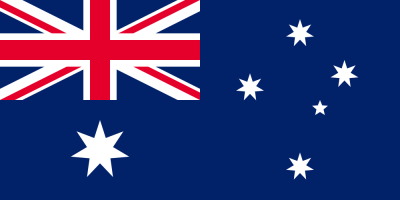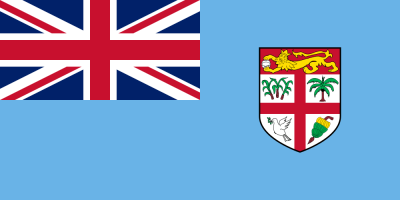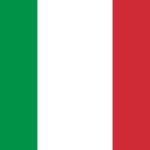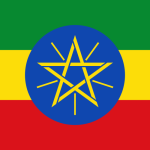New Zealand flag color codes is proudly displayed and recognized around the world. The striking blue background and bright red stars and stripes make the New Zealand flag color palette iconic. In this article, we provide the specific New Zealand flag color codes across different formats including HTML HEX, RGB, PANTONE, HSL, CMYK, HWB, and NCOL. Whether you need the precise flag colors for a graphic design project or to match the colors on a website, you’ll find the official flag color specs for New Zealand here. The colors carry symbolism about the nation’s British heritage and location in the South Pacific.
Table of Contents
What are the colors of New Zealand flag?
The colors of the New Zealand flag are:
- Blue – The background of the flag is royal blue. Specifically Pantone 280C. This represents the blue of the ocean surrounding New Zealand.
- Red – The stars of the Southern Cross and the Union Jack are crimson red. Specifically Pantone 186C. This represents the British heritage of New Zealand.
- White – The four stars of the Southern Cross are white, representing purity and enlightenment.
So in summary, the three colors are:
- Royal blue (Pantone 280C)
- Crimson red (Pantone 186C)
- White
The blue background represents the ocean and sky surrounding New Zealand. The red symbolizes the historical ties to the British Empire. And the white stars represent the Southern Cross constellation that guides navigation in the southern hemisphere.
New Zealand flag color codes & Color Names:
BLUE
| Color Model | Value |
|---|---|
| HTML | #0033a0 |
| HEX | #0033a0 |
| RGB | 0, 51, 160 |
| PANTONE | Reflex Blue C |
| HSL | 218°, 100%, 31% |
| CMYK | 100%, 94%, 0%, 37% |
| HWB | 218°, 0%, 37% |
| NCOL | N/A |
RED
| Color Model | Value |
|---|---|
| HTML | #ce1126 |
| HEX | #ce1126 |
| RGB | 206, 17, 38 |
| PANTONE | 186 C |
| HSL | 356°, 84%, 44% |
| CMYK | 0%, 92%, 82%, 19% |
| HWB | 356°, 0%, 19% |
| NCOL | N/A |
What is the meaning of colors in the New Zealand flag?
Here are some details on the symbolism of the colors in the New Zealand flag:
- Black represents the night sky of New Zealand. It also symbolizes strength and determination.
- White represents purity, honesty, integrity, and peace. It symbolizes a cloud-free blue New Zealand sky.
- Red represents the sacrifices made by the men and women who defended New Zealand. It also represents the fertile land and bravery of the nation.
- Blue represents the ocean and skies surrounding New Zealand. It symbolizes the national aspirations of the New Zealand people.
So in summary, the black, white and red colors symbolize various virtues and values of the New Zealand nation and people, while the blue represents the natural landscape and environment of the country. The flag’s design and colors reflect important parts of New Zealand’s culture, history and vision for the future.
Explore More Flag Colors:
- Niger Flag Color Codes
- Guinea Flag Color Codes
- Aruba Flag Color Codes
- Dominican Republic Flag Color Codes
FAQs: Frequently Asked Questions:
Is it expensive in New Zealand?
Here are some aspects to consider:
Housing: The cost of accommodation, whether renting or buying, can be a significant expense, especially in major cities like Auckland and Wellington.
Groceries and Goods: The cost of groceries and everyday goods can be relatively high, partly due to New Zealand’s geographic isolation, which affects the prices of imported goods.
Transportation: Owning a car and fuel costs can be relatively expensive. Public transportation is available, but costs can vary depending on the region.
Healthcare: While New Zealand has a public healthcare system, there are also private healthcare options. Some medical expenses may not be fully covered by the public system.
Education: If you have children and are considering private schooling or tertiary education, these costs can add to the overall expenses.
Recreation and Leisure: Costs for recreational activities, dining out, and entertainment can vary. New Zealand offers a range of outdoor activities and experiences that may have associated costs.
Is New Zealand is best for living?
New Zealand is the best place for you to live:
Advantages:
Natural Beauty: New Zealand is renowned for its breathtaking scenery, including mountains, beaches, and lush landscapes. Outdoor enthusiasts may appreciate the country’s opportunities for hiking, skiing, and water activities.
Quality of Life: New Zealand consistently ranks high in global quality of life indices. The country is known for its safety, healthcare system, education, and overall well-being.
Cultural Diversity: New Zealand is a culturally diverse country, and its indigenous Māori culture plays a significant role in shaping the national identity. The welcoming and inclusive atmosphere contributes to a multicultural society.
Low Population Density: While certain areas can be more densely populated, New Zealand, in general, has a lower population density compared to many other countries. This can contribute to a sense of space and tranquility.
Clean and Green Environment: New Zealand places a strong emphasis on environmental conservation, and the country is known for its commitment to sustainability and ecological preservation.
Outdoor Lifestyle: The outdoor lifestyle is a major draw for those who enjoy activities such as hiking, skiing, surfing, and exploring nature. New Zealand offers a wide range of recreational opportunities.
Considerations:
Isolation: New Zealand is geographically isolated, and travel to and from the country can be lengthy and relatively expensive. This isolation may influence international business and travel plans.
Cost of Living: While the quality of life is high, the cost of living in New Zealand, including housing and certain goods, can be relatively high, especially in major cities.
Job Market: The job market may vary depending on the industry and location. Researching job opportunities and industries in advance is important for those considering a move.
Weather: New Zealand’s climate can be diverse, but some areas experience changeable weather. Individuals who prefer a specific climate should consider regional variations.
Is New Zealand a developed or developing country?
New Zealand is considered a developed country. It has a well-established and stable economy, high standards of living, advanced infrastructure, and a strong social and institutional framework. The Human Development Index (HDI), which measures a country’s overall development based on factors like life expectancy, education, and income, consistently ranks New Zealand among the top developed nations in the world.
Why is New Zealand so famous?
Here are some factors that contribute to New Zealand’s fame:
1. Breathtaking Landscapes:
New Zealand is renowned for its diverse and stunning landscapes, including mountains, fjords, beaches, and lush greenery. Iconic locations such as Fiordland National Park, Milford Sound, and the Southern Alps attract visitors from around the world.
2. The Lord of the Rings Film Trilogy:
The captivating scenery of New Zealand served as the backdrop for Peter Jackson’s film adaptation of J.R.R. Tolkien’s “The Lord of the Rings” trilogy. The film series showcased the country’s natural beauty and contributed to its global fame.
3. Adventure and Outdoor Activities:
New Zealand is an adventure lover’s paradise, offering activities such as bungee jumping, skydiving, skiing, hiking, and water sports. The country’s diverse terrain provides ample opportunities for outdoor enthusiasts.
4. Indigenous Māori Culture:
The Māori, the indigenous people of New Zealand, have a rich cultural heritage that includes traditional art, dance (haka), and language (Te Reo Māori). Māori cultural experiences, including traditional ceremonies and performances, are popular attractions.
5. Rugby Dominance:
Rugby is a major part of New Zealand’s culture, and the national rugby team, the All Blacks, is one of the most successful and well-known rugby teams globally. Their distinctive silver fern logo has become an iconic symbol.
6. Friendly and Welcoming People:
New Zealanders, or Kiwis, are often recognized for their friendly and welcoming nature. The country’s hospitality contributes to positive experiences for both residents and visitors.
7. Conservation and Environmental Initiatives:
New Zealand is committed to environmental conservation, with initiatives to protect its unique flora and fauna. The country’s efforts to preserve its natural beauty and biodiversity contribute to its global reputation.
What is good salary in New Zealand?
here are some general considerations regarding salary levels in New Zealand:
Average Income:
The average annual income in New Zealand is influenced by factors such as the industry and job role. As of recent data, the median household income is around NZD 102,000 per year.
Minimum Wage:
New Zealand has a minimum wage, and the rates are periodically reviewed. As of 2022, the adult minimum wage is NZD 20.00 per hour.
High-Income Occupations:
Certain high-demand and specialized occupations, especially in industries such as IT, healthcare, and engineering, tend to have higher salary ranges. Senior management positions and executive roles in various sectors also command higher salaries.
Regional Variations:
Salaries can vary between regions, with larger cities generally offering higher wages to account for the higher cost of living. Auckland, Wellington, and Christchurch are among the cities where salaries may be relatively higher.
Cost of Living:
The cost of living in New Zealand, especially in major cities, can be relatively high. Housing costs, in particular, can significantly impact the overall budget.
Is it easy to get a job in New Zealand?
Here are some considerations:
In-Demand Skills: If you possess skills that are in high demand in New Zealand, such as those in the IT, healthcare, engineering, and trades sectors, you may find it relatively easier to secure a job.
Qualifications and Experience: Having relevant qualifications and work experience aligned with the job requirements can enhance your chances of getting hired. Some professions may require recognition of overseas qualifications.
Work Visa Requirements: Ensure that you understand and meet the visa requirements for working in New Zealand. The type of visa you apply for will depend on factors such as your intended length of stay, employment offer, and qualifications.
Job Market Conditions: The overall job market conditions can influence the ease of finding employment. Certain industries may be more competitive, while others may have a shortage of skilled workers.
Networking and Connections: Building a professional network in New Zealand can be beneficial. Networking events, online platforms, and industry associations can help you connect with potential employers and colleagues.
Research Employers and Industries: Research companies and industries in New Zealand to identify potential employers. Understanding the local job market and tailoring your applications accordingly can improve your chances.
Is New Zealand a rich or Poor country?
Key factors contributing to New Zealand’s status as a developed country include:
Economic Stability: New Zealand has a stable and diverse economy with strengths in sectors such as agriculture, tourism, technology, and services. The country has weathered economic challenges and demonstrated resilience.
Human Development Index (HDI): New Zealand consistently ranks high on the Human Development Index, which measures overall development based on indicators such as life expectancy, education, and income.
Quality of Life: New Zealand is known for offering a high quality of life, with factors such as healthcare, education, safety, and environmental sustainability contributing to the overall well-being of its residents.
Social Welfare System: The country has a well-established social welfare system that includes healthcare, education, and support for those in need, contributing to social equity.
Infrastructure and Institutions: New Zealand has developed infrastructure, strong institutions, and a legal framework that supports economic and social stability.
What is the main occupation in New Zealand?
Some key sectors and main occupations in New Zealand include:
Agriculture and Farming:
Agriculture is historically significant in New Zealand, with a focus on dairy farming, sheep farming, horticulture, and forestry. Occupations in this sector include farmers, farm managers, and agricultural workers.
Tourism:
Tourism is a major industry in New Zealand, attracting visitors from around the world. Occupations in this sector include tour guides, hotel and hospitality staff, travel agents, and those involved in adventure tourism.
Technology and IT:
The technology and IT sector has grown in importance, with a focus on software development, information technology, and innovation. Occupations include software developers, IT professionals, and engineers.
Healthcare:
The healthcare sector plays a crucial role, with occupations such as doctors, nurses, healthcare assistants, and allied health professionals contributing to the well-being of the population.
Education:
Education is a key sector, with teachers, professors, and educational support staff contributing to the country’s education system. New Zealand is home to several universities and educational institutions.
Construction and Infrastructure:
Due to ongoing development and infrastructure projects, there is a demand for construction workers, engineers, architects, and related professionals.
Manufacturing:
Manufacturing industries, including food processing, engineering, and wood processing, provide job opportunities for workers with relevant skills.
What are 5 facts about New Zealand?
Here are five interesting facts about New Zealand:
Breathtaking Landscapes:
New Zealand is known for its stunning and diverse landscapes. From the Southern Alps and Fiordland National Park to the geothermal wonders in Rotorua and the picturesque beaches, the country boasts breathtaking scenery. It served as the filming location for the “The Lord of the Rings” film trilogy, showcasing its natural beauty to a global audience.
Maori Culture:
The Maori, the indigenous people of New Zealand, have a rich cultural heritage that plays a significant role in the country’s identity. Traditional Maori arts, such as carving and tattooing (ta moko), and cultural practices, including the haka (war dance), contribute to the cultural tapestry of New Zealand.
Unique Wildlife:
New Zealand is home to unique and sometimes unusual wildlife. Notable examples include the kiwi bird, which is an iconic national symbol, and the flightless parrot known as the kakapo. The country’s isolation has contributed to the evolution of distinct flora and fauna.
Adventure Capital:
New Zealand is often referred to as the “Adventure Capital of the World” due to its abundance of outdoor activities. The country offers opportunities for bungee jumping, skydiving, skiing, hiking, and water sports. Queenstown, in particular, is famous for its adventure tourism.
Nuclear-Free Policy:
New Zealand is known for its anti-nuclear stance and commitment to being nuclear-free. In 1987, the New Zealand government passed the New Zealand Nuclear Free Zone, Disarmament, and Arms Control Act, prohibiting nuclear-powered or nuclear-armed vessels from entering its waters.













